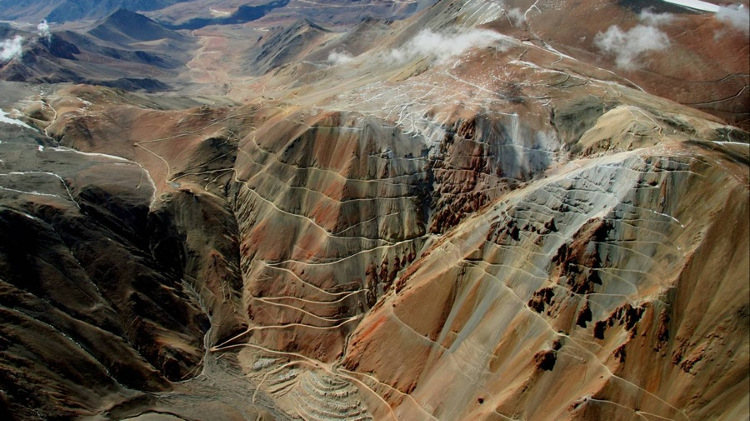Prime Minister Justin Trudeau (left) and Foreign Affairs Minister Chrystia Freeland (right) announced Thursday that Canada would impose tariffs on U.S. steel, aluminum and other goods in retaliation against similar tariffs by the U.S. Screencap courtesy of CPAC
Welcome back to your weekly mining news recap. At the end of every week we’ll catch you up on the mining news from CIM Magazine and elsewhere that you might have missed. Among this week’s headlines: The federal government agreed to buy Kinder Morgan’s Trans Mountain pipeline for $4.5 billion, Pan American Silver reduces operations in Mexico as concerns mount over worker safety, and the U.S. and Canada are imposing steel and aluminum tariffs on each other.
*****
Kinder Morgan reported a small spill Sunday on its controversial Trans Mountain pipeline. B.C.’s environment ministry told CIM Magazine the 100-litre spill was quickly contained and no oil reached local wetlands, but the pipeline was shut down for more than 10 hours. The spill on its existing line comes as protesters worry Kinder Morgan’s plan to expand the pipeline will lead to more spills into fragile local waterways.
Later in the week on Tuesday, Kinder Morgan announced it had reached a deal to sell the expansion project and existing pipeline to the federal government, CIM Magazine reported. The $4.5 billion deal came just before a May 31 deadline from Kinder Morgan to clear opposition to the pipeline or face cancellation. The federal government had previously offered to indemnify Kinder Morgan against the costs of any politically motivated delay. The federal government said it plans to sell the pipeline back to the private sector as soon as possible.
Pan American Silver announced on Monday it had reduced operations at its Dolores mine in northern Mexico due to concerns for worker safety. In a report by the Associated Press, the company said workers at the mine in a remote part of Chihuahua state felt threatened by armed groups last weekend and were afraid to leave the site. The company evacuated some of them by air. Ore-stacking and processing continue. Other companies have recently cut operations in the country as violent crime has intensified over the last few years.
De Beers announced Tuesday it is creating a new corporation to sell man-made diamonds to the public. This represents a shift for the company away from promoting natural diamonds, according to Reuters. The company, called Lightbox Jewelry, will market the artificial stones for retail sale at a lower price than the natural gems. De Beers said it will add a minuscule mark to these stones to differentiate them from the natural diamonds. According to the company, the artificial and natural gems serve different markets and will not hurt business.
The U.S. and Canada are placing steel and aluminum tariffs on each other after the U.S. ended a tariff exemption for Canada, the E.U. and Mexico. The federal government announced Thursday it will match the U.S. tariffs of 25 per cent on steel and 10 per cent on aluminum with tariffs of equal value on steel, aluminum and other goods, the CBC reported. The U.S. enacted the policy on national security grounds in March using an obscure 1960’s trade clause. While major allies were initially exempted from the tariff, the exemption had to be renewed. The national security reasoning has disturbed allies, especially since Canada is legally part of the U.S. military industrial complex. The trade dispute comes during stalled NAFTA negotiations and some have speculated it is being used as leverage in the talks.



